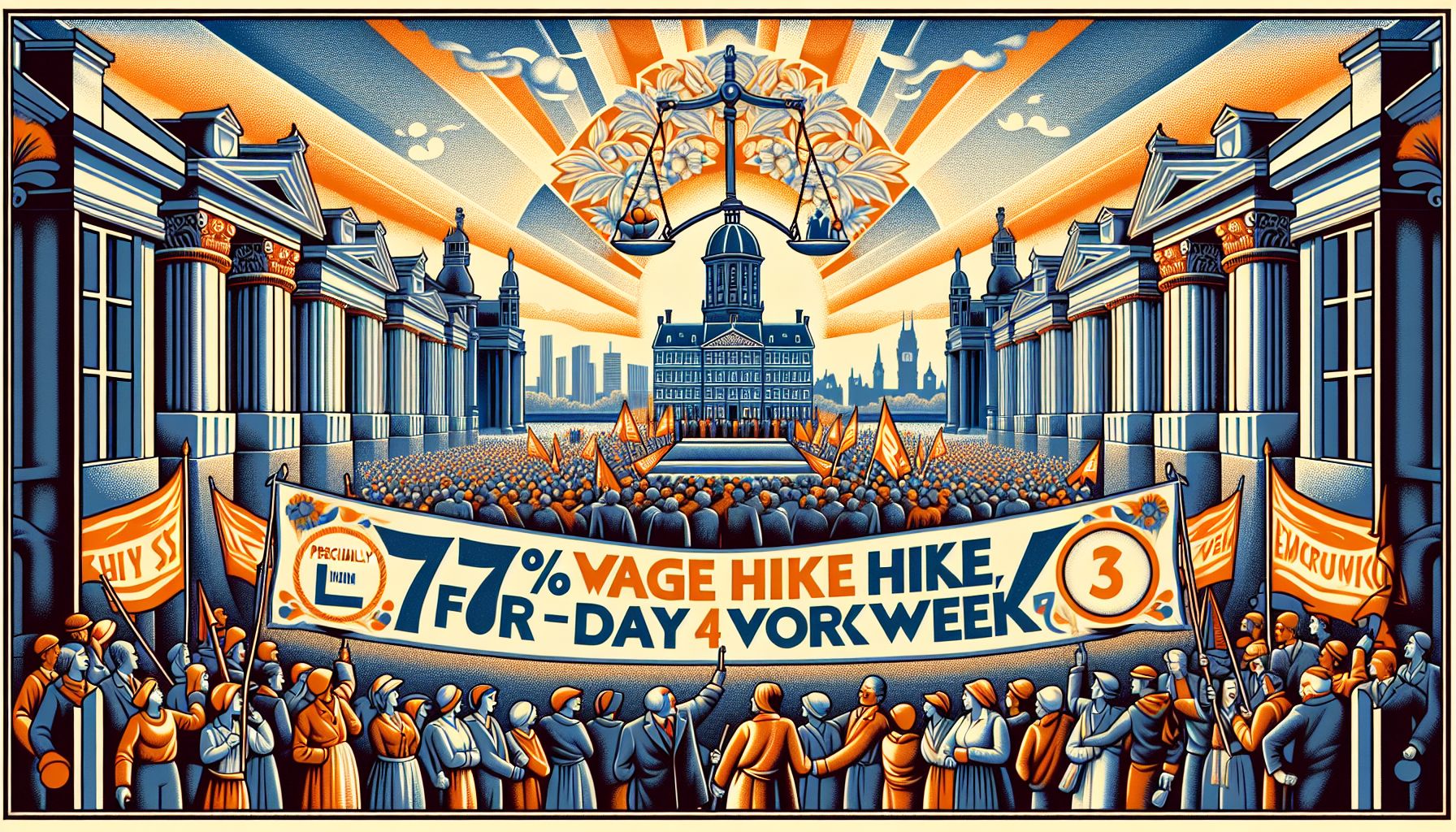Dutch Union FNV Pushes for 7% Wage Hike and Four-Day Workweek

Netherlands, Tuesday, 17 September 2024.
FNV, a major Dutch trade union, is demanding a 7% salary increase and a four-day, 32-hour workweek for 2025, particularly in the healthcare sector. The union argues these changes will improve work-life balance, boost productivity, and address labor shortages. Employers, however, call the proposals ‘unrealistic’ given current economic conditions.
Union’s Justification for Demands
FNV Vice-Chair Zakaria Boufangacha emphasized that the proposed wage increase and reduced workweek aim to address long-standing issues of stagnant wages and poor working conditions. ‘The wages have lagged for years with no real improvement in purchasing power,’ Boufangacha stated. He pointed out that while the wealthier segments of society have seen their fortunes grow, many workers struggle to make ends meet and face deteriorating work conditions. The union believes that the wealth generated by economic growth should be more equitably distributed[1].
Impact on Healthcare Sector
The healthcare sector, in particular, is a focal point for these demands. The FNV argues that a four-day workweek could mitigate the critical labor shortages plaguing the sector. ‘Research shows that a shorter workweek can actually increase labor supply, improve productivity, and reduce absenteeism due to illness,’ Boufangacha noted[2]. By making full-time work more attractive, the union hopes to alleviate some of the pressures on healthcare workers, who have been particularly hard-hit during recent years.
Employer Concerns
Employers, however, have pushed back against these demands. The Association of Employers in the Netherlands (AWVN) labeled the four-day workweek as ‘unrealistic,’ citing an already strained labor market. ‘There are already too few people to do all the work,’ an AWVN spokesperson remarked. Employers are also concerned that substantial wage increases could undermine the competitiveness of Dutch companies and weaken the overall economy[3].
Economic Context and Inflation
The union’s demands come in a context of declining inflation, which has allowed the FNV to lower its wage increase request from the 14% sought this year to a more ‘modest’ 7% for 2025. Despite this, the union remains committed to ensuring automatic compensation for price increases to secure future wage stability[1].
Comparisons with CNV Proposals
Interestingly, FNV’s demands are more aggressive than those of CNV, another major Dutch union, which has proposed a 3.5% to 6% wage increase and a gradual reduction in working hours. CNV envisions a 30-hour workweek as an ideal but is currently advocating for a 2-hour reduction in weekly working hours to improve work-life balance[4].
Government and Economic Experts Weigh In
The International Monetary Fund (IMF) has also weighed in, warning of increasing worker shortages in sectors like healthcare and technology due to the aging population. IMF researcher Bernardin Akitoby stressed the need to encourage part-timers to work more hours to make better use of the available workforce[3]. Similarly, ABN Amro economist Aggie van Huisseling has warned that the four-day workweek may be difficult to implement given the tight labor market and aging workforce, suggesting that flexibility in working hours might be a more viable solution[3].
Future Negotiations
As the collective labor agreement negotiations for 2025 approach, it remains to be seen how these demands will be addressed. The FNV is steadfast in its belief that a four-day workweek and a significant wage increase are necessary steps to improve the quality of life for Dutch workers and to tackle labor shortages effectively. The upcoming negotiations will reveal whether these ambitious goals can be reconciled with economic realities and employer constraints.

